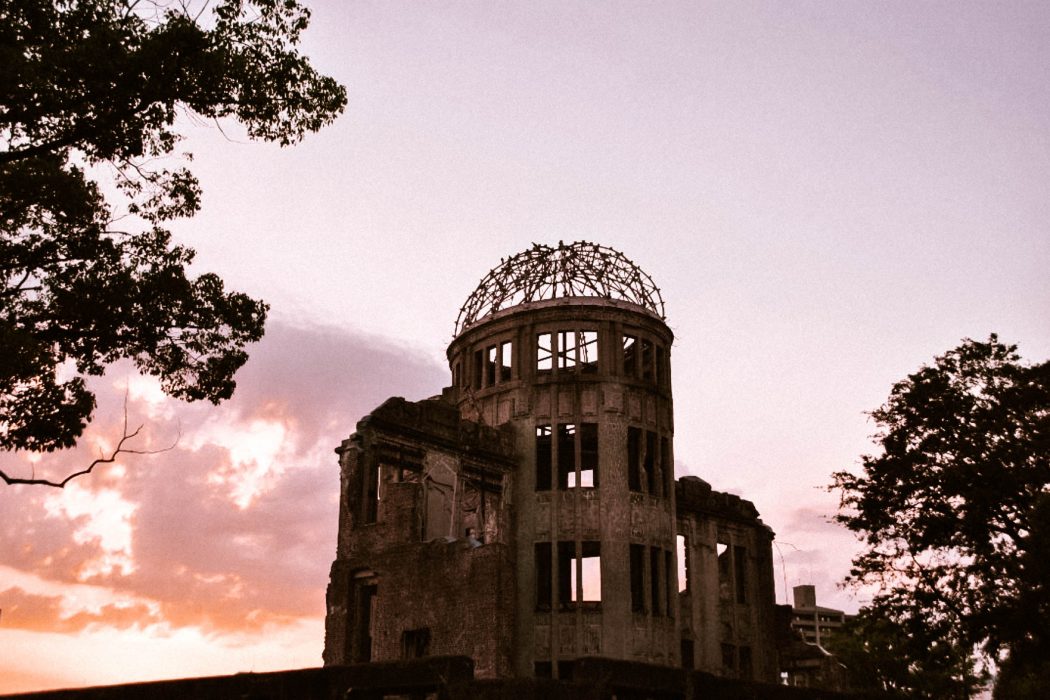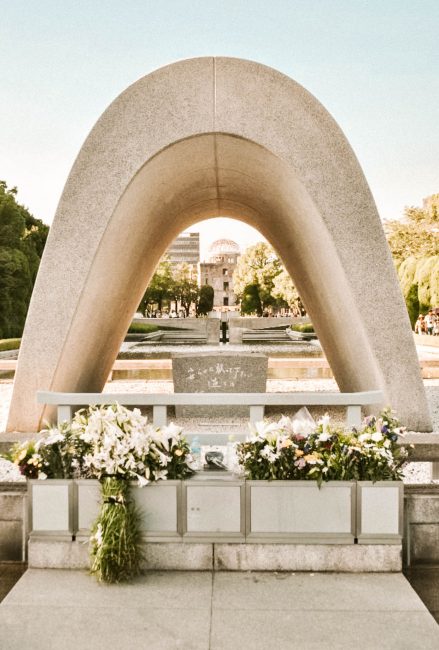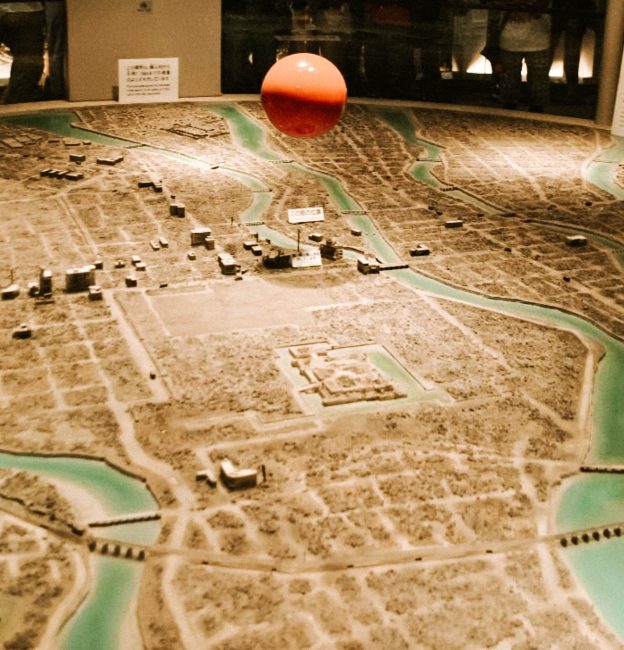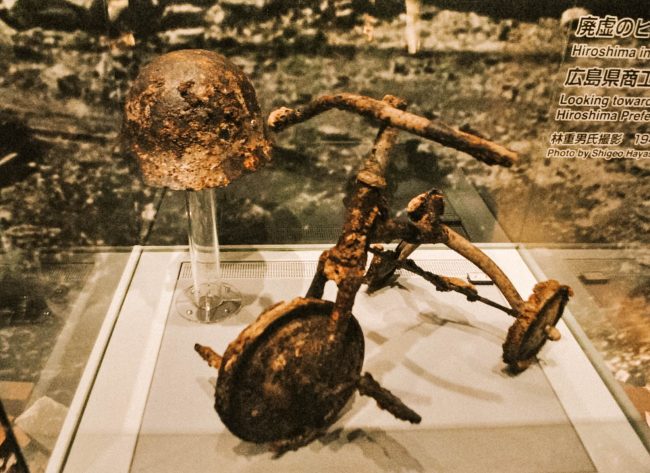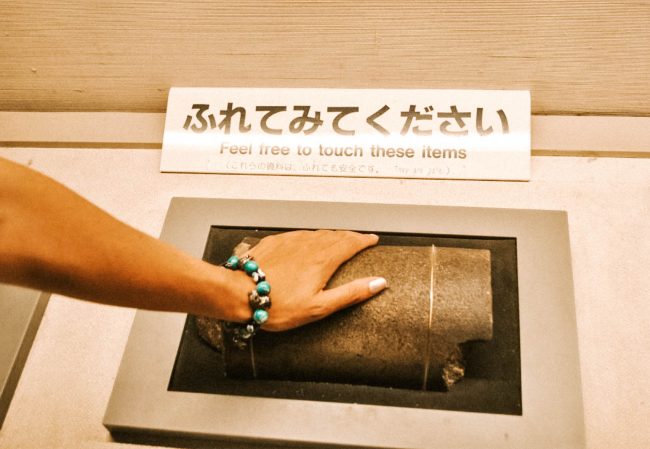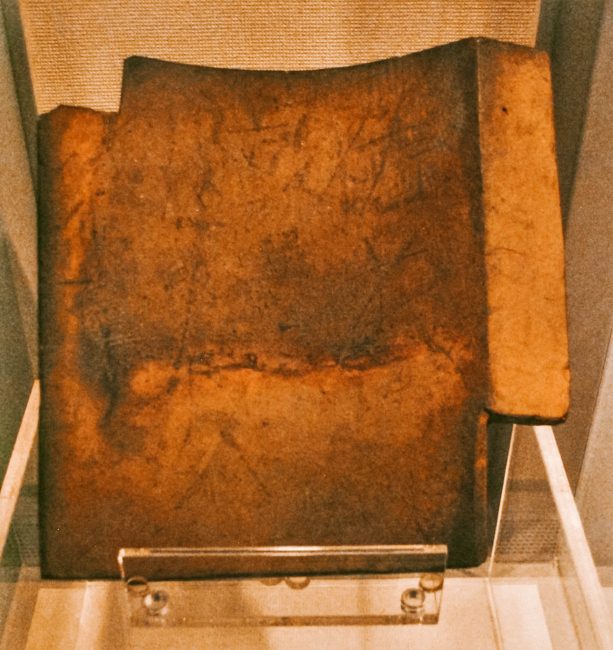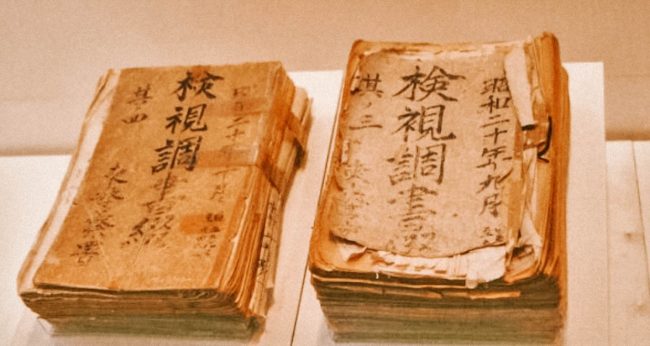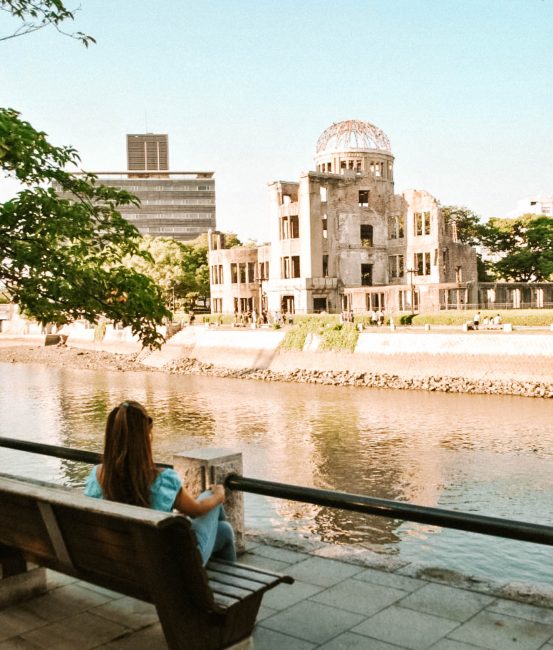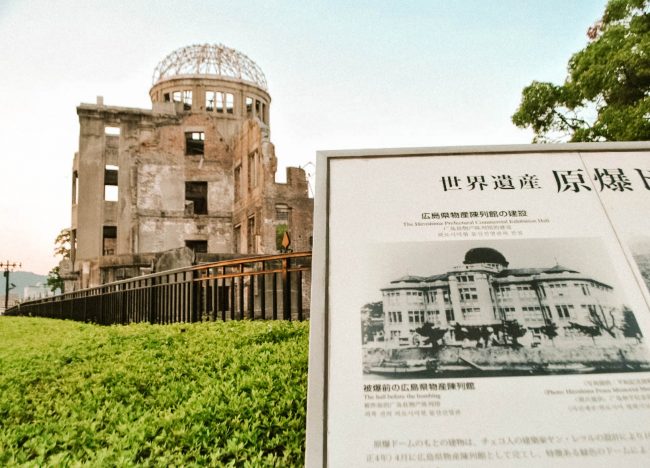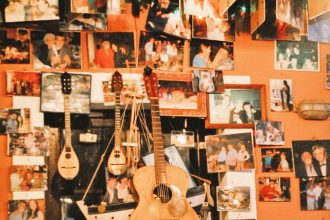On August 6, 1945, a U.S B-29 bomber nicknamed “Enola Gay” dropped the first nuclear weapon on the city Hiroshima (broad island). More than 70,000 people were killed instantly by the blast and a mushroom cloud spread deadly radiation much farther. Hiroshima and the subsequent bombing on Nagasaki effectively brought World War II to an end. However, the world would never be the same.
Dubbed the ‘City of Water’ due to the six rivers that flow through it, the Japanese city of Hiroshima has become a shrine to peace and pacifism.
Peace Memorial Park and Museum
Visiting the poignant Peace Memorial Park and Museum was truly an emotional impact. Mere words can not describe the heartwrenching emotions that come to fore. Everyone should visit the exhibit at least once to be aware of the enormous impact of the atomic bomb so that it never be used again.
The Flame of Peace and the Atomic Bomb Dome can be seen through the arch of the saddle-shaped concrete structure known as the Memorial Cenotaph. Designed by Kenzo Tange, the evocative momument represents a shelter for the souls of the victims. The cenotaph is inscribed with the phrase: “Let all the souls here rest in peace, for we shall not repeat the evil”.
The Exhibit
Time stood still at 8.15 AM. Little Boy, a 15 kiloton bomb, exploded 580 metres above Hiroshima creating a destructing fireball that blazed like the sun and showering the city with radiation. In the early stages of the explosion, temperatures of 10 of millions of degrees were produced. The energy released by the uranium bomb was equivalent to 15,000 tons of TNT.
The deadly explosion was beyond imagination. All of a sudden, the pleasant city of Hiroshima was almost completely annihilated. Thousands of people and animals were unbelievably vaporised and buildings including hospitals and first-aid clinics were reduced to dust and ashes.
Out of its 45 hospitals only 3 functioned. Breathless, thirsty and completely naked, the survivors wandered in agony through post- apocalypse Hiroshima. Unfortunately, there were no medicines, no pain relief, no food or water. The devastation left by the bomb was beyond anything seen before. The streets were utterly deserted. Many fled towards the hills surrounding the city hoping to find some help.
It’s impossible not to fall silent in front of the shredded remains of a junior high-school uniform, or the frame of a trycicle a child named Shin was riding that fateful morning.
Messages on a roof tile
The eighteen-year-old Toru Sato was out of Hiroshima Prefecture at the time of the atomic bombing. When he returned on August 9 to look for his family, he found this roof tile in the ruins of their house. The message on the roof tile said: “Sato family, Atsuko well, Kuniko dead, Father, Tatsumi, Kazue unkown”.
War casualty inquest ledgers
Records of names and addresses of victims burned or crushed to death by the A-bomb. Such records and name lists were prepared at police stations, relief stations, hospitals and outlying town halls.
Atomic Bomb Dome
The symbol of the “Peace City”
After paying our respects to the Hiroshima victims, we paused for a while in front of the A-Bomb Dome, the only structure left standing in the area. The ruin, which has been preserved in the same state as immediately after the bombing, quietly memorializes the tragedy and reminds us of the hope for world permanent peace.
On that bright, cloudless morning of August, as I contemplated the skeletal remains of the former Industrial Promotion Hall, I could perfectly imagine the moment the bomb fell. A bomb that without mercy destroyed many innocent lives and caused unprecedented damage.
Absolutely nothing can justify Hiroshima and Nagasaki. It was a crime against humanity involving indiscriminate mass killing of civilians. Life will go on, however the image of the mushroom cloud rising into the sky and every single story related by the survivors will linger forever in my mind. Sitting on that bench, I promised to myself I would always spread love, peace and appeal for a pleasant future without nuclear weapons.
Spiritual Escape To The Island Of Shrines
Hiroshima is also the gateway to tranquil Miyajima island known as the ‘Island of Shrines’. The virgin forest of Mount Misen, the island’s wild but friendly deer population and its iconic red gate which appears to float at high tide are what makes the unmissable island of Miyajima so significant. Click here to read about our visit to the romantic isle of Miyajima.
Latest posts by Rakel (see all)
- Hotel Can Joan Capó- Adults Only, in Sineu (Mallorca) - July 12, 2023
- Northern Light Ranch, Kittila (Finland) - January 23, 2022
- A Quick Guide to Mallorca - November 16, 2021

